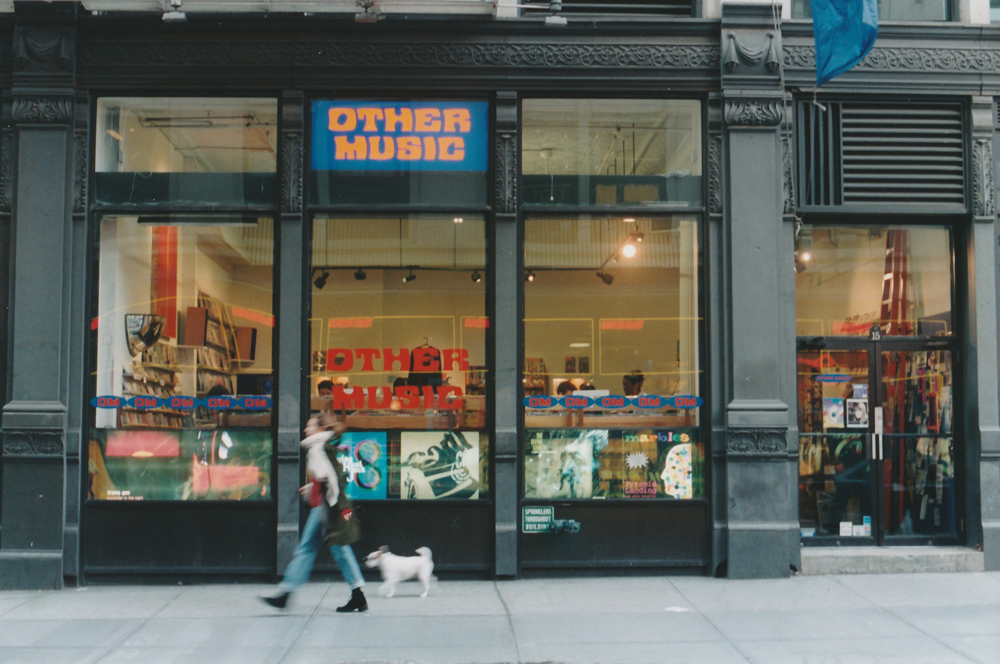“It’s a lot harder to put it together than take it apart,” Josh Madell says rather wistfully, seeing the record bins that lined Other Music, the store he owned with Chris Vanderloo for 21 years, as they’re being diassembled and packed into the back of a truck. You can tell from the barren floors how popular the store was by the paint that’s vanished from the areas where there were the most foot traffic and Madell seems to be at peace with the situation, seemingly aware that the physical space for the alternative music mecca was always temporary but it’s unlikely to leave the mind of anyone who visited there any time soon.
Thankfully, Puloma Basu and Rob Hatch-Miller had the foresight to keep the doors open as much as they can for future generations by wrangling a camera crew to capture the store’s final six weeks in the East Village, an occasion that neither they nor the owners choose to mourn, but celebrate. The store is packed with bargain hunters and well-wishers, but one senses that even though a dip in sales led to the store’s imminent demise, it’s business as usual, with longtime clerks pointing people towards obscurities they may be unfamiliar with and a constant buzz filling the air as discoveries of new music are made. Basu and Hatch-Miller honor this sensation by making music as much a part of the film’s DNA as seems to be for any of the employees, in the obvious way of having a lively eclectic soundtrack that runs the musical gamut underscoring an oral history of the store, but incorporating ingenious stylistic touches such as riffing on the sound of register bar code scans and the eventual sledgehammering to bring the store down to give “Other Music” rhythm.
While “Other Music” doesn’t avoid the subject of the intimidation one could feel walking into the store where the clerks were so knowledgeable and suffered no fools – Regina Spector admits she’d feel like “being on her first day of school” every time she’d walk in – there’s a welcoming, egalitarian quality to Basu and Hatch-Miller’s presentation of interviewees and the store itself that seems reflective of its true nature as a place where there was something for everyone, no matter what their specific interest was. Musicians were customers (and employees) and vice versa and it’s a credit to the filmmakers that no one seems to be given more weight in an interview than anyone else, despite catching The Magnetic Fields’ Stephin Merritt and Benicio Del Toro presumably on last-minute shopping trips and Ezra Koenig of Vampire Weekend and Jason Schwartzman in more traditional sit-downs, suggesting the real community that built Other Music together. And lest it seems like this is being seen through rose-colored lenses, the brilliant decision is made to interview Madell and Vanderloo’s wives, who are clearly supportive of their spouses yet can speak unemotionally about the financial hardships of owning an independent record store in the Internet age.
Engaging with a larger cultural conversation about what is lost when the physical interaction that takes place in a store is replaced by an online exchange with an algorithm, “Other Music” is compelling even for those not interested in how the place served as an incubator for musical movements such as the early Aughts rock explosion that produced The Strokes and Interpol and renewed interest in artists such as Serge Gainsbourg and Jackson C. Franklin through tasteful curation. Basu and Hatch-Miller show just as much discretion in picking their moments from the rich and illustrious history Other Music has and in making a film about the end of something, they let you appreciate how just how special what Madell, Vanderloo and co-founder Jeff Gibson started was.
“Other Music” will screen at the Tribeca Film Festival on May 5th at 8:45 pm at the Village East Cinemas.




